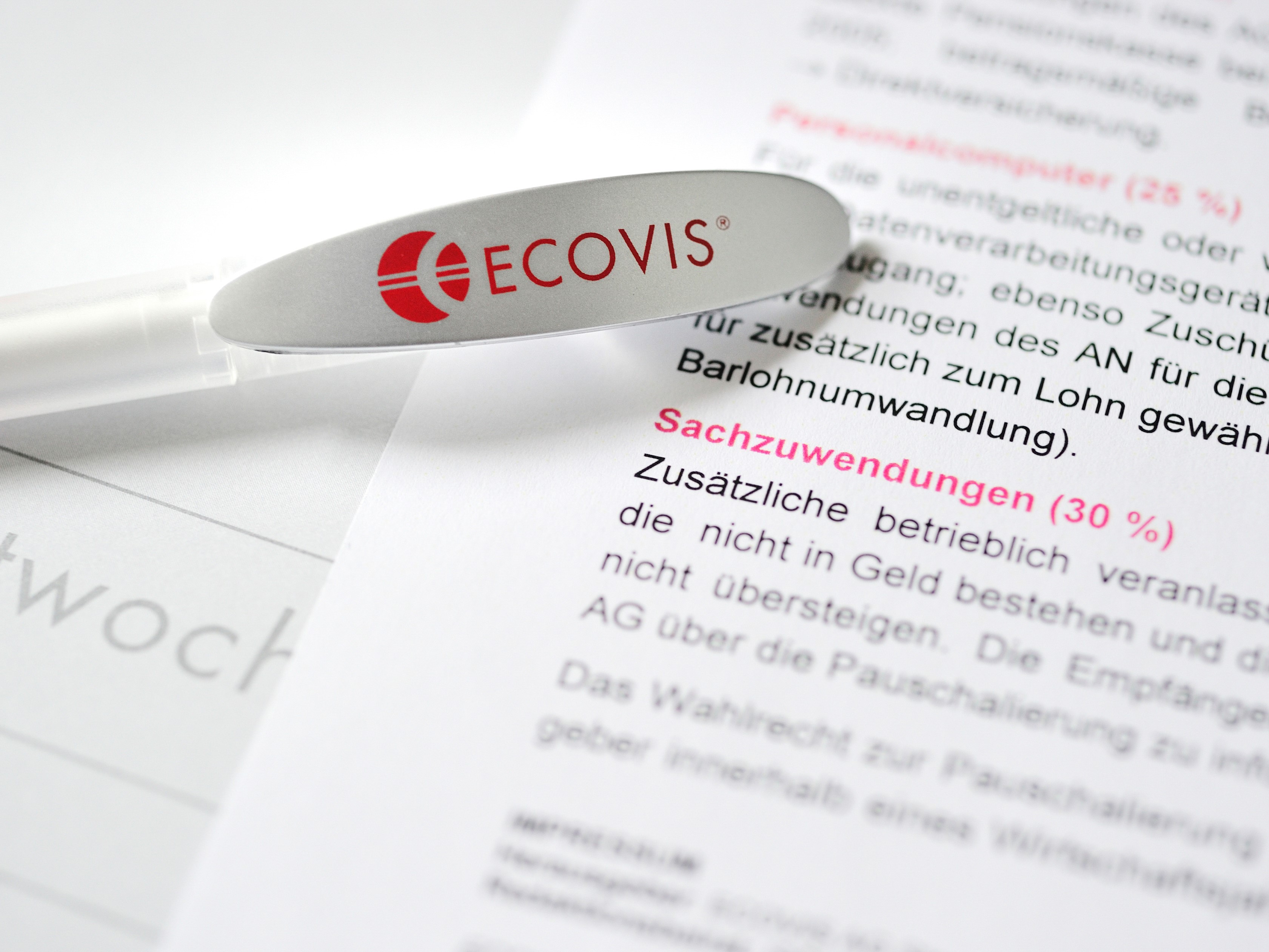2019 Year-End Legal Checklist for Owners of Czech Companies✔
Top 10 Things That Every Owner of a Czech Company Should Check Before the Year-End
As the year 2019 is coming to an end, it is a good idea for your Czech business to conduct a legal audit to prevent unnecessary risk and expenses in the coming year. A few minutes now can save you substantial cost and trouble later. Here are a few things that you should consider doing with respect to your Czech business before the arrival of the New Year.
ECOVIS ježek has prepared a legal checklist, or a Czechlist, if you want … Here are some items that your Czech business needs to have done by the end of the year and that owners of Czech legal entities should tick off in their year-end to-do list.
The year 2020 will bring not only new obligations, but also stricter checks regarding compliance with the existing obligations, which have not been actively enforced yet. Even without the new obligations, it can be riskier for owners of Czech businesses than ever. One of the most famous Czech footballers, Antonín Panenka, knows very well about it , and see also goal #4 between Top 10 Famous Penalty Kicks). A registration court ordered liquidation of his company because it had failed to fulfil the obligation of filing its financial statements in the Collection of Deed of the Czech Commercial Register. In another case, which is the case of our client, there is a risk that the company with a billion-dollar turnover will be liquidated by a court order, just because one of its executives resigned and no other executive was appointed immediately, even though the company had three other executives, each acting separately ...
ECOVIS ježek, a Czech law office on the most important areas of legal due diligence in 2019
Mojmír Ježek on a whole range of business neglected business issues in the year 2019, where the administrative bodies and courts of the Czech Republic began to focus. Risking sanctions or putting things right before the end of 2019? Learn more in this article
If you have questions or questions about changes, you can contact us at any time.
t: +420 226 236 600 | e: mojmir.jezek@ecovislegal.cz
1. Filings in the Czech Collection of Deeds✔
Czech registration courts and financial authorities have started stricter monitoring of the fulfilment of various obligations by all Czech companies and societies registered in the Commercial Register. Even in 2019, a series of proceedings were commenced, in which the courts threatened not only to impose financial penalties of up to CZK 100,000, or up to 3% of gross assets, but also to order liquidation (winding-up) of companies. Czech registration courts and financial authorities may impose such obligations and penalties mainly under the Czech Accounting Act, the Czech Act on Public Registers and the Business Corporations Act.
One of the most frequently audited obligations is the proper filing of the following documents in the Collection of Instruments of the Czech Commercial Register: annual reports, ordinary, extraordinary and consolidated financial statements (if they are not part of the annual report and if they must be filed under the Accounting Act and if other acts set out that such documents must be prepared), the proposal of profit distribution or settlement of losses, including their final form, if they are not part of the financial statements, and auditor's report on the clearing of accounts. These financial statements must be prepared and filed in the Collection of Instruments while the financial statements must be approved within six months after the end of the accounting period.
2. Registration of Beneficial Owners in the Czech Register of Beneficial Owners ✔
By December 31, 2018, all beneficial owners of Czech companies must have been registered in the new Czech register of beneficial owners of legal entities and trust funds. Effective from January 1, 2019, registration of beneficial owners is subject to an administrative fee of CZK 1,000. The respective form can be completed on the website of the Ministry of Justice and attachments provided in electronic form (pdf) are sufficient.
Records of the data regarding beneficial owners of legal entities have been maintained in the Czech Republic since January 1, 2018. A beneficial owner is any natural person that has the possibility to exercise, either directly or legally, the factual influence within a given legal entity, with more detailed rules being set for individual types of legal entities. These records will be kept at registration courts, which will collect the names, addresses of the place of residence, birth dates and personal numbers, nationality, and facts forming the basis of their status as beneficial owners, whether it be a share in the voting rights, distributed funds, or other factors. The application for the registration of a beneficial owner must be filed by the legal entity itself, and it will be obliged to keep an internal list of owners independently of the public records. The data will not be publicly available, but the range of people and authorities accessing it will be quite broad.
For more information, read Forms and website for Czech beneficial owner registration are available.
3. Annual General Meeting & Minutes of Meeting(s) of Czech Companies ✔
The general meeting of a Czech company must be held annually, because the financial statements must be approved. The financial statements must be prepared and approved within six months after the end of the accounting period. The governing body of a Czech company is then required to prepare the minutes of the general meeting and file them without undue delay in the Collection of Instruments of the Czech Commercial Register. Under the effectiveness of the original Czech Commercial Code, the Supreme Court of the Czech Republic has judged in its judgement file No. 29 Cdo 4284/2007 that the decision on the profit distribution (dividends pay out) must be adopted by the General Meeting no later than 6 months after the end of the accounting period (usually until 30 June), otherwise it is invalid. Even though the legal regulation under the Czech Commercial Business Corporations Act has not changed fundamentally and no new case law has been adopted by the Supreme Court of the Czech Republic since then, it is gradually beginning accepted by the Czech legal professionals that, after completing the statutory insolvency test, there is no need for a 6 month deadline for the decision to distribute the company's profit. Nevertheless, it is only possible to recommend a cautious approach and prefer to decide on the payment of an advance on a dividend that is expressly permitted by Czech law.
The shareholder meeting is also required to elect members of the company’s governing body and board members if their term of office is about to expire or has already expired. For Czech business corporations (Czech companies and cooperaives including Czech associations of unit owners - SVJ), the time limit is set for members of the board of directors and supervisory board of joint stock companies, cooperatives, associations and Czech associations of unit owners (SVJ). Czech companies and cooperatives (and asssications and Czech associations of unit owners) very often forget that, unlike the directors of limited liability companies, these members have to be re-elected, or else they will cease to perform their office without further action and cannot act or exercise their rights and duties as a supervisory authority.
Any failure to comply with the abovementioned obligations despite an additional appeal at a Czech registration court is subject to a fine of up to CZK 100,000 or, in extreme cases, liquidation of the company can be ordered by the court.
4. Adaptation of Articles to the Czech Business Corporations Act and New Czech Legislation ✔
Many Czech companies have failed, until today, to revise their Articles or Memorandum of Association in compliance with the applicable law. Under the Czech Business Corporations Act, Czech companies must adapt their Articles or Memorandum of Association to comply with the Czech Business Corporations Act by July 1, 2014, and file the amended documents in the Collection of Instruments of the Czech Commercial Register. For societies, the deadline was on January 1, 2017. The usual provisions, which should have been added in the Articles or Memorandum of Association, include the exact number of executives, and it was possible to cancel the reserve fund, because under the Business Corporations Act, it is no longer obligatorily established and maintained.
Any failure to comply with the abovementioned obligations despite an additional appeal at a Czech registration court may be subject to a fine of up to CZK 100,000 or, in extreme cases, liquidation of the company can be ordered by the court.
5. Keeping Information in Czech Commercial Register Up-to-date ✔
Also, the information entered about companies in the Commercial Register does not quite often correspond to the real situation. If a company does not have a seat at the address entered in the Czech Commercial Register or has not properly listed members of the governing body or does not have a properly listed scope and objects of business activities, then in extreme cases, there is a risk of liquidation of the company ordered by the court. The company should be registered in the Czech Commercial Register with the address where it is really located; it should have properly registered members of the governing body and the scope (objects) of its business.
Any failure to comply with any obligation specified above may in extreme cases result in liquidation of the company ordered by the court, or in a fine of up to CZK 100,000 despite an additional appeal at the court.
6. Czech Company’s Webpage ✔
Do not underestimate the importance of your website! A Czech joint stock company must have its own dedicated website which must contain the information specified below:
· Name, seat, ID
· business name, address, company Reg. No. (ID)
· details of the company’s entry in the public register
· invitation to the general meeting
· financial statements
· annual report
· information whether it is part of any group
· an explanation for the shareholders unless given directly at the general meeting
· counter-proposals of shareholders regarding the matters on the agenda of the general meeting, together with the board of directors’ statement,
· a report on financial assistance pursuant to section 311 letter d) of the Czech Business Corporations Act
· expert opinion according to section 91 of the Czech Business Corporations Act
· information on corporate transformations
If a Czech limited liability company has a website, it is obliged to publish the following information effective from January 1, 2014 and pursuant to section 7(2) and (3) of the Czech Business Corporations Act and section 435 of the Civil Code:
· business name and address
· details of an entry in the Commercial Register, including the section and the insert
· identification (registration) number
The same information must be indicated on all business documents issued by a Czech company.
If this obligation is not fulfilled, the court may request that the company should comply with these obligations. If the Czech company does not respond to this request, the Czech registration court can impose a fine of up to CZK 100,000.
7. Agreement for the Performance of Office on a Body Corporate ✔
Companies were obliged to adapt to the new legal regulation applicable to the existing management agreements of members of the governing body by July 1, 2014 at the latest. If the respective contract is not concluded, the office is deemed to be performed free of charge. The same applies if the remuneration or any kind of cash or non-cash consideration in favour of a member of the governing body, or a close person, is not defined in the agreement, and/or approved by the general meeting.
8. Czech Trade Licence Register ✔
Czech Trade Licence Offices have also started stricter checks of whether registered entities comply with the obligations imposed by the Trade Licencing Act. In particular, the Trade Licence Office checks whether all establishments are properly listed and designated. The Czech Trade Licencing Act stipulates that each establishment needs to be permanently and visibly marked on the outside, at least by the business name and business identification (registration) number. In case of establishments selling goods or providing services to consumers, the scope of the indication is further extended. Every business where a controlled entrepreneur carries on his business must be registered in the Czech Trade Licence Register.
Furthermore, it is also necessary to check the record of a responsible representative. In case of non-licenced trades, the appointment of the responsible representative is not required anymore by the Trade Licencing Act, but in case the responsible representative was previously appointed and registered and such record has not changed, the Trade Licence Office will require proof of the contractual relationship between the entrepreneur and the registered responsible representative.
The Trade Licence Office may impose a fine of up to CZK 500,000 under a decision about commitment of an administrative offence.
9. GDPR Compliance in Czech Republic ✔
More than enough has been written about GDPR compliance. Are there any real sanctions? The Czech Office for Personal Data Protection emphasizes on its website (https://www.uoou.cz/pristup-uradu-k-nbsp-pokutovani/d-31044) that it will invite and guide to corrections, not primarily punish for less serious acts and neglected misconduct, especially in case of small controllers. Over the last two years, it has pursued this approach in at least 500 cases.
Fines range from thousands up to tens of thousands of Czech korunas, both in the case of unsolicited commercial communications and with regard to the personal data protection. Fines totalled hundreds of thousands only in rare cases. For instance, in October 2018, the Office awarded a fine of CZK 1.5 million to Internet Mall, a.s. The reason was that the company did not sufficiently secure and protect personal data of at least 735,000 customers. In 2018, a fine of CZK 800,000 was also imposed on a company distributing a business offering using a third-party database. A record-high fine was imposed in 2017 in the amount of CZK 4.25 million for the dissemination of unsolicited commercial communications. If you want to know more about the case of of the Czech Office for Personal Data Protection please read the following article
Please note that since May 25, 2018, fines may amount to up to EUR 20 million or up to 4% of the total annual turnover. On the part of the Czech Office for Personal Data Protection, in case of a responsible approach and adoption of remedial measures, if the Office inspections detect any deficiencies, we can expect, in our opinion, a friendly and moderate approach.
10. Czech Audit and Czech consolidation duties✔
Companies with increasing turnover and assets that have not yet audited their financial statements should carefully check the conditions for failing to comply with the requirements for statutory audited financial statements and for grouping together for consolidation. A mandatory audit of the financial statements is carried out for the first time for the second accounting period in which the statutory criteria have been exceeded. For Czech joint-stock companies it is sufficient if the assets exceed CZK 40 million or the turnover exceeds CZK 80 million or the Czech joint-stock copany has more than 50 employees. For other companies, min. two of these criteria have to be met. The audit of financial statements may also be specified in specific statutory cases. The law provides for more detailed conditions and we therefore recommend that it be discussed directly with the auditor.
If the group of Czech companies exceeds at least 2 of the following criteria for the accounting period (i) the assets total more than 100 million, (ii) the turnover exceeds 200 million, and (iii) the average number of 50 employees, it is required to prepare the consolidated financial statements. Preparing the company for audit or consolidation is not easy and it is good to be in contact with the auditor in advance and to prepare for new duties and questions from the auditors. Please note that only one accounting period determines the consolidation.
The sanction for non-fulfillment of these obligations is similar to the above-mentioned other obligations, as the company does not fulfill the obligation to base these documents on the collection of documents and at the same time it is liable to a fine of 3% resp. 6% of total assets. Mr. Miloš Fiala, Auditor of ECOVIS Czech Republic and his team, will help you with the evaluation of the initial information and the setting up of the company, including the definition of the consolidation unit, and later with the verification of the consolidated financial statements. In cases where we only require the preparation of consolidated financial statements, these auditors are also at your service.
11. And the others?
We leave the other points for our clients ?.
Contact the law firm ECOVIS ježek
If you are interested in helping with your legal audit, or if you have further questions about other business related obligations at the end of this year, you can contact ECOVIS hedgehogs and its experienced team of Czech lawyers at any time. We offer services in many areas of business, including the establishment of a new company, or other areas of business support. You can contact us at +420 226 236 600 or send an e-mail to mojmir.jezek@ecovislegal.cz for a free consultation.
For those who have read the text to the end. If you are interested in checking the status of your company's collection, then we offer you a legal review for a lump sum of 200 EUR. For this amount we will check the completeness of the collection of documents and we will send you either a certificate of its integrity or a list of documents that you should add to the collection of documents.
For more information, please visit our website
http://www.ecovislegal.cz/en
The information contained on this website is a legal advertisement. Do not consider anything on this website as legal advice and nothing on this website is an advocate-client relationship. Before discussing anything about what you read on these pages, arrange a legal consultation with us. Past results are not a guarantee of future results, and previous results do not indicate or predict future results. Each case is different and must be judged according to its own circumstances.















